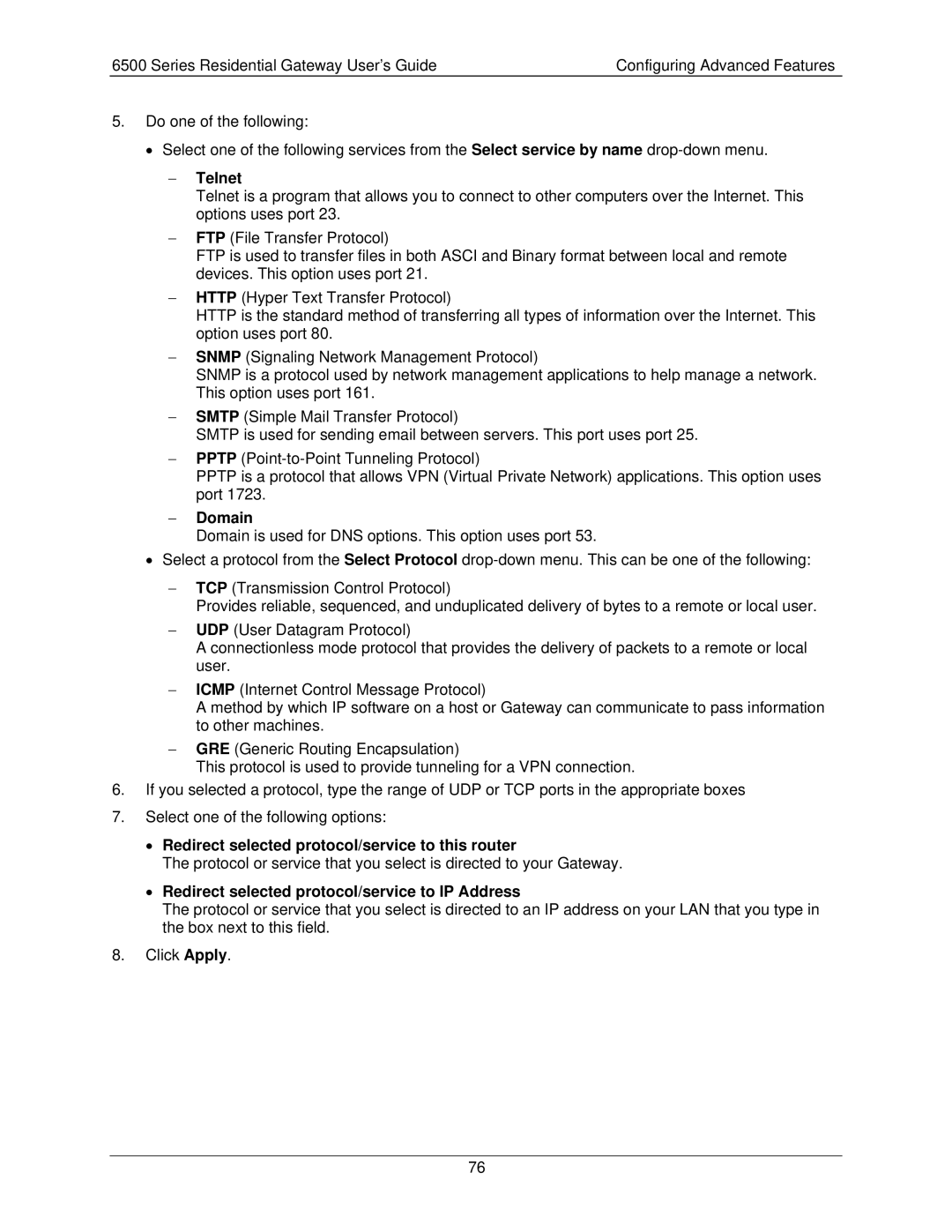6500 Series Residential Gateway User’s Guide | Configuring Advanced Features |
5.Do one of the following:
•Select one of the following services from the Select service by name
−Telnet
Telnet is a program that allows you to connect to other computers over the Internet. This options uses port 23.
−FTP (File Transfer Protocol)
FTP is used to transfer files in both ASCI and Binary format between local and remote devices. This option uses port 21.
−HTTP (Hyper Text Transfer Protocol)
HTTP is the standard method of transferring all types of information over the Internet. This option uses port 80.
−SNMP (Signaling Network Management Protocol)
SNMP is a protocol used by network management applications to help manage a network. This option uses port 161.
−SMTP (Simple Mail Transfer Protocol)
SMTP is used for sending email between servers. This port uses port 25.
−PPTP
PPTP is a protocol that allows VPN (Virtual Private Network) applications. This option uses port 1723.
−Domain
Domain is used for DNS options. This option uses port 53.
•Select a protocol from the Select Protocol
−TCP (Transmission Control Protocol)
Provides reliable, sequenced, and unduplicated delivery of bytes to a remote or local user.
−UDP (User Datagram Protocol)
A connectionless mode protocol that provides the delivery of packets to a remote or local user.
−ICMP (Internet Control Message Protocol)
A method by which IP software on a host or Gateway can communicate to pass information to other machines.
−GRE (Generic Routing Encapsulation)
This protocol is used to provide tunneling for a VPN connection.
6.If you selected a protocol, type the range of UDP or TCP ports in the appropriate boxes
7.Select one of the following options:
•Redirect selected protocol/service to this router
The protocol or service that you select is directed to your Gateway.
•Redirect selected protocol/service to IP Address
The protocol or service that you select is directed to an IP address on your LAN that you type in the box next to this field.
8.Click Apply.
76
